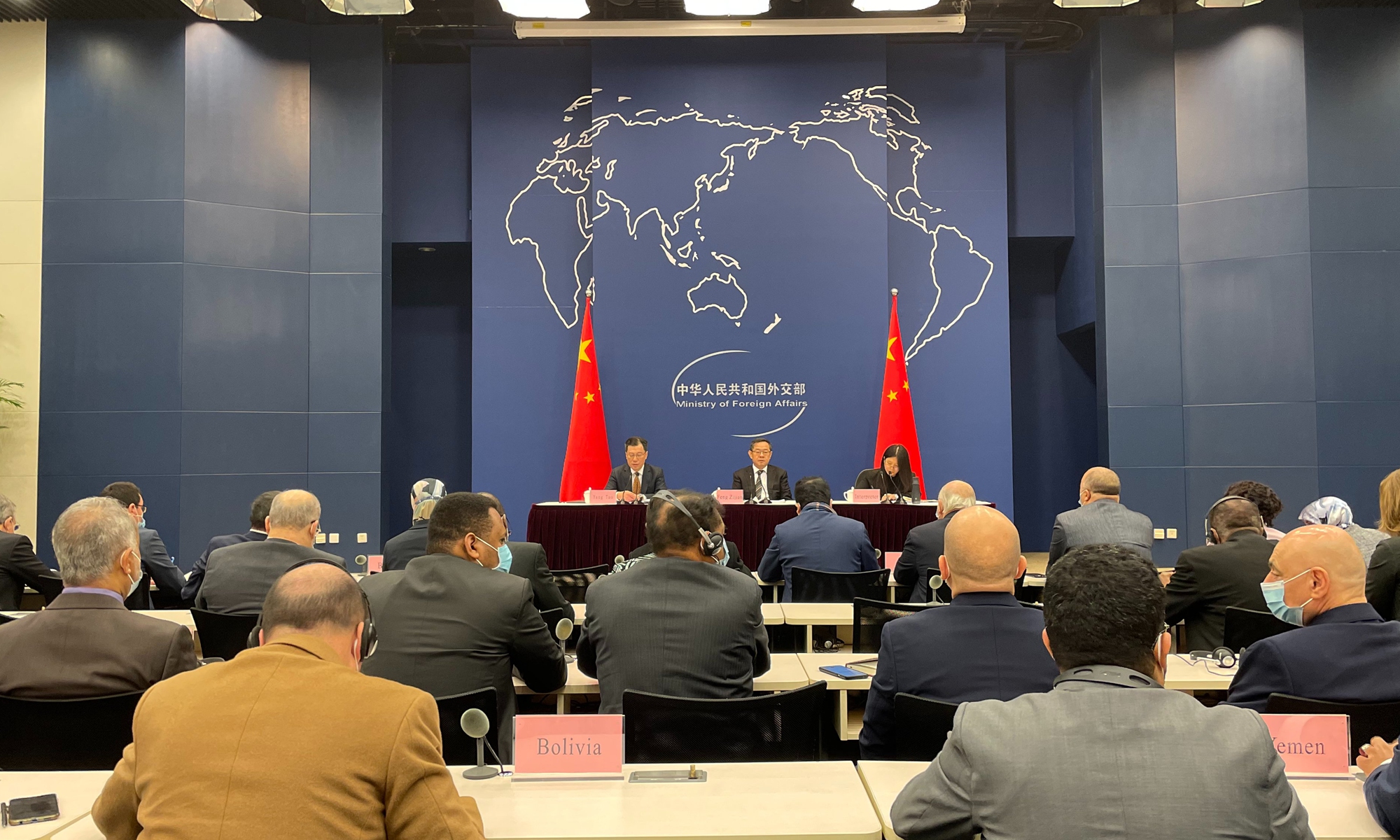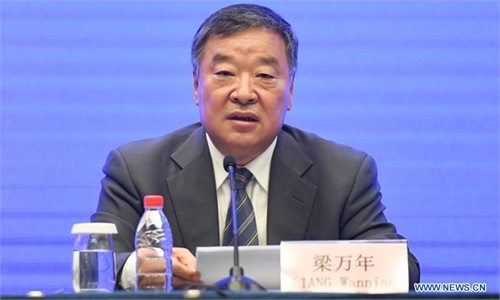
Photo: Chen Qingqing/GT
For almost a week, Chinese experts from the WHO joint team on COVID-19 origin-tracing studies have been revealing updates about the highly expected full report of the field studies about a month ago in Wuhan, Central China's Hubei Province - the first one reported confirmed coronavirus cases and welcomed the experts for the in-field work.
At the same time, the foreign experts of the team also delivered the message amid certain political pressure on the report, reflecting an intense and day-and-night communications between the two sides, insiders said.
A senior official of China's CDC, and also the expert of the WHO joint team on COVID-19 tracing studies in China, laid out major recommendations for the next phase of global efforts in the search for the origins of the virus, including the need to conduct studies at a wider scope to look for possible animal hosts, including in neighboring countries, and not only restricting research to bat species.
In a briefing with dozens of diplomats from 50 countries and two regional organizations on Friday at the Chinese Foreign Ministry, Feng Zijian, Deputy Director-General of the Chinese Center for Disease Control and Prevention (China's CDC) who is also the expert of the WHO joint team, talked about major findings, the detailed work of the WHO-China joint team from January to February in Wuhan and made major recommendations for the next phase of the origin-tracing studies, which is global scientific cooperation.
The source-tracing work of the WHO-China joint team in Wuhan, part of the global work of studying the virus origins, has been finalized with a consensus that this scientific work can't be done overnight, Feng told the briefing.
That the WHO-led origin-tracing work requires efforts on a global scale, of which China is just a part, is a consensus that came to between both the Chinese and the foreign experts of the joint team, Feng emphasized.
And through about one month of field studies in China, the expert team has established three groups for the origin-tracing work, including epidemiology, animals and environment, and molecular epidemiology. After a month of field studies, Chinese and foreign experts have reached a consensus on the main findings, conclusions and recommendations on the basis of joint analysis and discussions. They released their main findings at a joint press conference on February 9.
The experts found a highly similar virus to COVID-19 in bats and pangolins in terms of virus sequencing. However, it's proven not to be a direct ancestor, while more animal species, including minks and cats, have also been found worthy of inquiry as likely potential natural hosts of the virus, the Chinese expert said.
Also, beyond the Huanan market, a local seafood market in Wuhan that reported earlier outbreak clusters, there might be transmission routes that have not been traced or detected, according to the preliminary studies and early findings. It also indicates that the next phase of global studies on origins tracing should be expanded to a larger scope.
While some Western media like Bloomberg suggested that the report had been scheduled to release earlier but was then delayed "due to political wrangling," countries like the US have become vocal lately in an attempt to challenge the scientific findings, urging the team to "return to China" on the suspicious on the study result.
Mark Cassayre, charge d'affaires at the US mission to the UN in Geneva, was quoted as saying in a Reuters report on Thursday that the US expected the WHO studies into the origins of the COVID-19 outbreak to require further study, perhaps including a return visit to China. And the WHO revealed earlier that the full report was scheduled to release this week.
And prior to the official release of the full report of the studies in Wuhan, some countries have been pushing forward a West-led joint statement in opposing the content of the report, Yang Tao, an official of the ministry, told the briefing, noting that such moves of politicizing the global studies on the COVID-19 origins are damaging to the global work and global fight against the pandemic, which is immoral and only results in further loss of lives.
"China is willing to work with developing countries in fighting such West-led initiatives, and in cooperation in fighting the pandemic, including collaborating on vaccines," Yang said.
Diplomats and representatives from 50 countries attended the briefing, and two regional organizations that attended are from developing countries, the Arab League and the African Union.
Feng also noted that WHO and China experts have come up with a major recommendation for the next phase of studies, including the need to conduct studies in multiple countries and regions, such as China's neighboring countries, and to further look for possible animal species that could have acted as an intermediate host for the virus.
China has done tons of work in collecting samples from bats, and there's a lack of relevant work in research and sampling in neighboring countries of China and other countries across the world, Feng added. "Also, we need to not only focus on bats while ignoring other possibilities, as many other species are also vulnerable to the virus, which requires a larger scope of studies."
Another major recommendation for the next phase is to look into the role played by the cold chain, which enables the virus to survive for a long period of time and is critical for re-infecting people after long-distance travel, the deputy director of China's CDC said.
The joint study in Wuhan has created deeper ties between team members and made them good friends and colleagues, Liang Wannian, team leader of the Chinese side of the WHO-China joint expert team, told the Global Times in an exclusive interview recently. "At the beginning of this research, we established principles of 'four togetherness,' meaning we make plans together, undertake fieldwork together, draft the report together, and release publications together," Liang said.
Previously, the WHO said that the full report was scheduled for release this week; however, Chinese experts from the WHO-China joint experts' team were not notified about the release this week of the full report on the study of COVID-19's origins, a Chinese expert from the team recently told the Global Times, given time constraints.
Chinese experts also found out that there's palpable "political pressure" on the international experts, and the Chinese side was concerned that the final report might deviate from the previous consensus.
The anonymous Chinese expert also said that the two sides agreed that experts from both China and the WHO would continue to write the full text of the report based on the previous consensus, but a full draft report in English was not sent to China until March 17.
"The full report won't come out this week - probably next week, Peter Daszak, a foreign expert of the WHO-led team and president of EcoHealth Alliance, told the Global Times on Friday.


